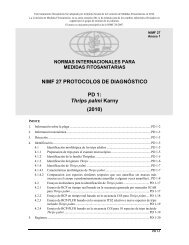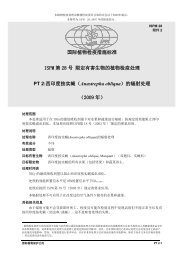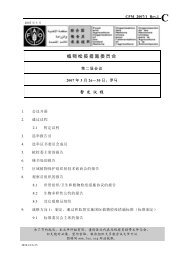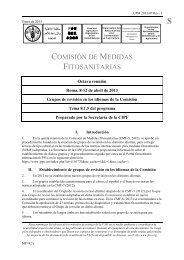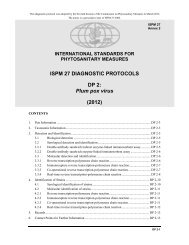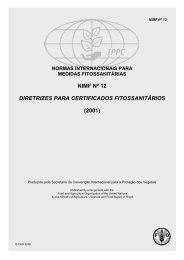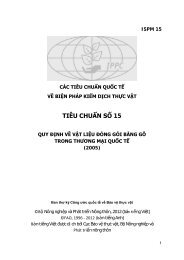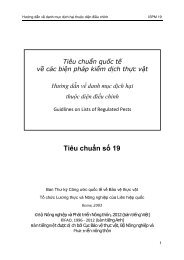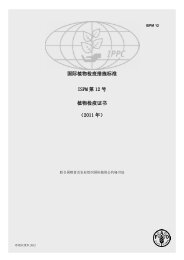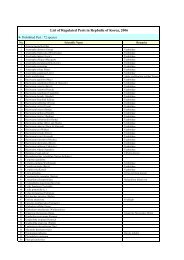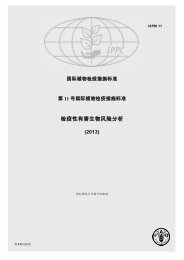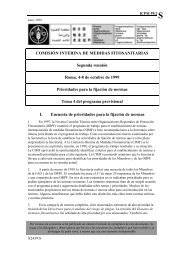Untitled
Untitled
Untitled
Create successful ePaper yourself
Turn your PDF publications into a flip-book with our unique Google optimized e-Paper software.
WORKSHOP REPORT<br />
Information Exchange – International Phytosanitary Portal (IPP) Training Workshop<br />
for the Asia Region, Kuala Lumpur, Malaysia, 3 – 6 May 2005<br />
Venue:<br />
BioInformatics Division<br />
Institute of Biological Science<br />
University of Malaya<br />
Jalan Pantai Baru<br />
50603 Kuala Lumpur<br />
Malaysia<br />
1. INTRODUCTION<br />
1.1 Background<br />
An Information Exchange – International Phytosanitary Portal (IPP) Training<br />
Workshop for the Asia Region, was held in Kuala Lumpur, Malaysia from 3 – 6 May, 2005.<br />
This workshop was jointly organized by the Department of Agriculture under the Ministry of<br />
Agriculture and Agro-Based Industries Malaysia in collaboration with the Secretariats of the<br />
International Plant Protection Convention (IPPC) and the Asia and Pacific Plant Protection<br />
Commission (APPPC). The workshop covered primarily APPPC member countries in the<br />
Asia Region and was funded by the Food and Agriculture Organization (FAO).<br />
This workshop was intended for participants responsible for information exchange in<br />
their respective National Plant Protection Organization (NPPO) and more specifically those<br />
tasked with entering the relevant information in the International Phytosanitary Portal (IPP).<br />
This portal is an internet-based information system designed to hold phytosanitary<br />
information published in accordance with the Convention, and decisions by the Interim<br />
Commission on Phytosanitary Measures. The system has recently been upgraded following<br />
the recommendations of the IPP support group, with improved features, speed and reliability<br />
to allow IPPC contracting parties to use the system to meet their national information<br />
exchange obligations under the IPPC. In addition to the ability to add news, calendar,<br />
publications, websites, projects, contacts and discussion groups, the IPP can now specifically<br />
accommodate:<br />
• Pest reports [Articles IV 2(b) & VIII 1(a) of the IPPC New Revised Text];<br />
• Description of the NPPOs [Article IV 4];<br />
• Phytosanitary restrictions, requirements and prohibitions [Article VII 2(b)];<br />
• Points of entry with specific restrictions [Article VII 2(d)];<br />
• Lists of regulated pests [Article VII 2(i)];<br />
• Emergency actions [Article VII 6];<br />
• Official contact point details [Article VIII 2];<br />
The primary objective of the IPP is to provide contracting parties with a single, freely<br />
accessible portal to meet their obligations to publish official phytosanitary information. In<br />
cases where a country already publishes information relevant to a particular reporting<br />
obligation, the IPP can incorporate links to the relevant authoritative official website.<br />
However, should a country not have their own website, they are able to upload the<br />
information into the IPP, i.e., it will behave as their own website.<br />
2




